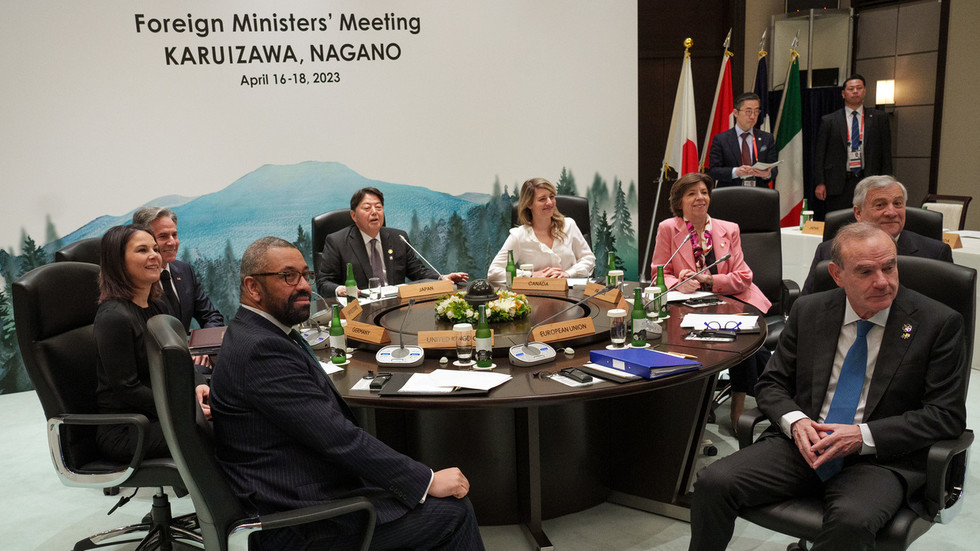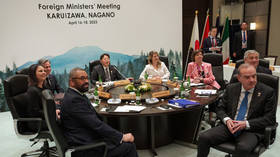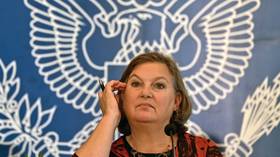
The funds will be released after the conflict with Kiev is resolved and Moscow pays for the damage, the group says

G7 foreign ministers and EU representative Enrique Mora Benavente in Karuizawa, Japan. © Soeren Stache / picture alliance via Getty Images
Russian assets frozen by the G7 nations will remain “immobilized” until the Ukraine conflict is resolved and Moscow has to pay reparations, the group of industrialized economies has said.
“Any resolution to the conflict must ensure Russia pays for the damage it has caused,” the Group of Seven stated on Tuesday in a joint communique of foreign ministers who met this week in Japan.
The ministers also announced their intention to intensify the economic restrictions on Russia and to punish third parties for any attempts to “evade and undermine our sanctions measures.” They must “cease assistance to Russia’s war, or face severe costs,” the G7 warned.
The group, which includes Canada, France, Germany, Italy, Japan, the UK, and US, has condemned Moscow for launching its military operation in Ukraine in February 2022.
The intragovernmental group of leading economies was formed in the 1970s, but its relative economic clout has since declined, as other nations, including Brazil, China, India, and South Africa, continue to grow. These four, along with Russia, form an informal group known as BRICS, which contributes more to global GDP than the G7 nations, according to British research firm Acorn Macro Consulting.

Read more
The G7 has been one of the primary vehicles for formulating punitive actions, such as a price cap on Russian energy, which member states have sought to enforce through the threat of secondary sanctions against buyers that violate the restrictions. There have been claims in the media that Japan is buying Russian crude at prices over the prescribed cap of $60 per barrel.
The US and its allies have frozen a reported $300 billion of Russian foreign reserves, as well as the assets of private individuals who they deem to be ‘oligarchs’ that are close to the Russian government. Kiev and Washington want the frozen funds to go to post-war reconstruction efforts in Ukraine, but many Western nations have said that simply expropriating the money would violate their laws.
Last week, the Russian central bank reported that the nation’s foreign reserves once again surpassed the $600 billion benchmark. The all-time high was recorded on February 18, 2022, days before the Ukraine conflict broke out, when Russia possessed $643.2 billion in reserves.
READ MORE: Russia’s reserves surge past $600 billion
Russia rejects the Western claim that the military operation in Ukraine was unprovoked, saying it was in response to a proxy war against Moscow conducted by Washington to undermine competition on the world stage.




